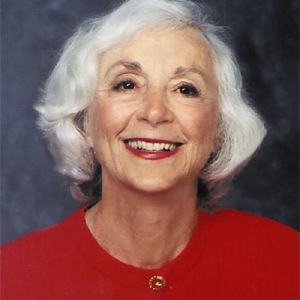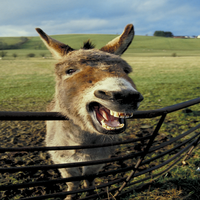Changing the World
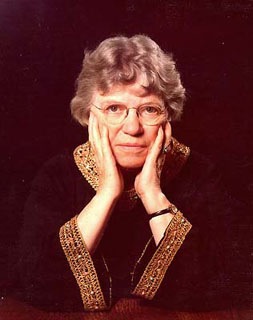
“Never doubt that a small, group of thoughtful, committed citizens can change the world. Indeed, it is the only thing that ever has.”
–Margaret Mead (American Anthropologist and Writer, 1901-1978)
Creative Connections
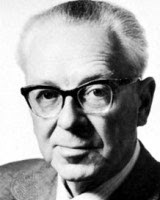
“It is the power of creative men to perceive the relations between thoughts, or things, or forms of expression that may seem utterly different, and to be able to combine them into some new forms–the power to connect the seemingly unconnected.”
–William Plomer (South African Poet, Novelist and Editor, 1903-1973)
Don’t Wait!
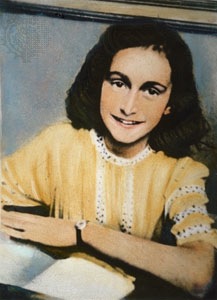
“How wonderful it is that nobody need wait a single moment before starting to improve the world.”
–Anne Frank (German Diarist, 1929-1945)
A Mystic Bond
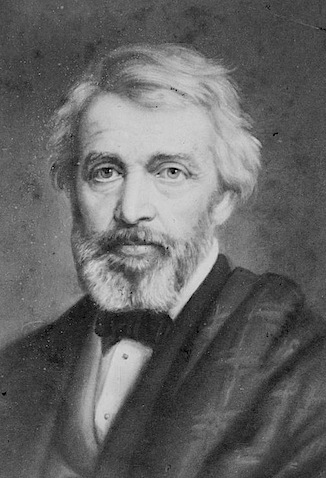
“Of a truth, men are mystically united: a mystic bond of brotherhood makes all men one.”
–Thomas Carlyle (Scottish Historian and Essayist, 1795-1881)
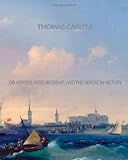
“On Heroes, Hero-Worship, and The Heroic in History” (Thomas Carlyle)
Conscious Cooperation
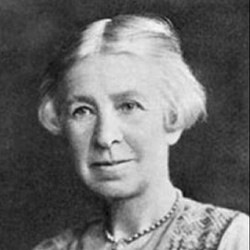
“Free and conscious cooperation in the great life of the All alone can make personal life worth living.”
–Evelyn Underhill (English Mystic, Poet, Writer and Spiritual Counselor, 1875-1941)
Separation and Integration
“The ego always seeks to divide and separate. The Holy Spirit always seeks to unify and heal.”
–A Course in Miracles (Book of Spiritual Principles Scribed by Dr. Helen Schucman between 1965 and 1975, and First Published in 1976)
Many of us feel that we have lost or forgotten something important and it nags at us. In the Matrix, Morpheus tries to capture this when he says, “There is a splinter in your mind.”
What we have forgotten is the hidden secret not only to who we are but also to what we may become.
There are hundreds of thousands of books, websites, classes, groups and, of course, religions that all say that they have an answer to those two questions. And I tend to believe that they probably all do. But each has only a part of the puzzle.
Integrated Medicine was always designed to provide answers synthesized from the very best of what is already available.
I am always being asked whether Integrated Medicine is an approach toward health and wellness, a method of achieving personal growth and development or some form of holistic treatment?
The answer is “Yes!”
The goal is not to replace other forms of self-care or treatment, but to integrate and enhance them. The reason for using the term “Integrated,” and why it is a little different from Integrative or Integral medicine, is that it aims to:
- Integrate an individual’s current health and wellness practices into a combined whole
- Integrate all the parts of a person, for the quotation is true: the role of the ego is to separate itself from the rest of the Universe, and healing come from the Source: your Informational Matrix, your Inner Light or Soul
- Integrate healing methods that will ensure that each aspect of you being is addressed and respected so that the healing can flow. Not only of your body, but of your mind, relationships, the planet, society, subtle systems and your spirituality
- Integrate your views about the nature of reality: healing is not simply a matter of fixing a physical machine. In any case, this is not always possible. The objective is not to “use” methods and insights to heal the body. It is rather to ask that your Overself or Higher Self teach you the right perception of your body and your mind. That is why I am always recommending that the first thing that you can do for yourself is to develop your intuition so that it provides a delicate counterbalance to your ability to reason. If you have ever been to a gym, you know the importance of exercising not just your bicep muscle, but your triceps muscle as well. One without the other will make you lopsided. So it is with intellect and intuition.
- Integrate the personal you with something beyond yourself. The ultimate aim of Integrated Medicine is not simply to stay well, but to return to Wholeness
And all have been done already with tens of tousands of people around the globe.
Will you be next?
“To have a curable illness and to leave it untreated except for prayer is like sticking your hand in a fire and asking God to remove the flame.”
— Unknown Author (Sometimes attributed to “Sandra L. Douglas”)
"A house divided against itself cannot stand.”
–Abraham Lincoln (American Statesman and, from 1861-1865, the 16th President of the United States, 1809-1865)
“In the integral Yoga, the integral life down to even the smallest detail has to be transformed, to become Divine.”
— The Mother of Pondicherry (a.k.a. Mirra Alfassa, French-born Indian Spiritual Teacher, 1878-1973)
Albert Schweitzer
Today is the birthday of Albert Schweitzer who was born in Kaysersberg, Alsace-Lorraine, Germany. It is one of those parts of the world that has often changed hands and is now in Haut-Rhin, Alsace, France.
He was a remarkable man: as a youngster he was a famous organist and was highly interested in the music of Johann Sebastian Bach, whom he regarded as a religious mystic.
He decided that after the age of 30 he would dedicate himself to the service of humanity and became both a theologian and physician. He received the 1952 Nobel Peace Prize in 1953 for his philosophy of "reverence for life" expressed in many ways but most famously in founding and sustaining the Lambaréné Hospital in Gabon, west central Africa.
I have heard some people be very critical of Schweitzer, describing him as patronizing toward Africa. I don’t think that is right. If you look at his actions and his writings, it is clear that he had an extraordinary compassion and vision.
Here are a few of his writings from my own collection. I hope that you find some of them as inspirational as I have.
“A great secret of success is to go through life as a man who never gets used up.”
“A heavy guilt rests upon us for what the whites of all nations have done to the colored peoples. When we do good to them, it is not benevolence it is atonement.”
“A man can do only what he can do. But if he does that each day he can sleep at night and do it again the next day.”
“A man does not have to be an angel to be a saint.”
"All the kindness which a man puts out into the world
works on the heart and thoughts of mankind.”
“All work that is worth anything is done in faith.”
“An idea is, in the end, always stronger than circumstances.”
“Anyone who proposes to do good must not expect people to roll stones out of their way, but must accept their lot calmly, even if people roll a few stones upon it.”
“As soon as man does not take his existence for granted, but beholds it as something unfathomably mysterious, thought begins.”
“As we acquire more knowledge, things do not become more comprehensible, but more mysterious.”
“At that point in life where your talent meets the needs of the world, that is where God wants you to be.”
“At times our own light goes out and is rekindled by a spark from another person. Each of us has cause to think with deep gratitude of those who have lighted the flame within us.”
“Be faithful to your love and you will be recompensed beyond measure.”
“Because I have confidence in the power of Truth and of the spirit, I believe in the future of mankind.”
“By having reverence for life, we enter into a spiritual relation with the world.”
“Do something wonderful, people may imitate it.”
“Ethical existence is the highest manifestation of spirituality.”
“Ethics, too, are nothing but reverence for life. That is what gives me the fundamental principle of morality, namely, that good consists in maintaining, promoting, and enhancing life, and that destroying, injuring, and limiting life are evil.”
“Every man has to seek his own way to make himself more noble and to realize his own true worth”
“Example is not the main thing in influencing others. It is the only thing.”
“Happiness is nothing more than good health and a bad memory.”
“I don’t know what your destiny will be, but one thing I do know: the only ones among you who will be really happy are those who have sought and found how to serve.”
“I have always held firmly to the thought that each one of us can do a little to bring some portion of misery to an end.”
"If you love what you are doing, you will be successful."
“In everyone’s life, at some time, our inner fire goes out. It is then burst into flame by an encounter with another human being. We should all be thankful for those people who rekindle the inner spirit.”
“In the same way as the tree bears the same fruit year after year, but each time new fruit, all lastingly valuable ideas in thinking must always be reborn.”
“It seemed to me a matter of course that we should all take our share of the burden of pain which lies upon the world.”
“Knowing all truth is less than doing a little bit of good.”
“Man has lost the capacity to foresee and to forestall. He will end by destroying the earth.”
“Man is a clever animal who behaves like an imbecile.”
“Medicine is not only a science, but also the art of letting our own individuality interact with the individuality of the patient.”
“Natural and super-natural, temporal and eternal – continuums, not absolutes.”
“No ray of sunshine is ever lost, but the green which it awakens into existence needs time to sprout, and it is not always granted for the sower to see the harvest. All work that is worth anything is done in faith.”
“One thing I know: the only ones among you who will be really happy are those who will have sought and found how to serve.”
“One truth stands firm. All that happens in world history rests on something spiritual. If the spiritual is strong, it creates world history. If it is weak, it suffers world history.”
“One who gains strength by overcoming obstacles possesses the only strength which can overcome adversity.”
“Only those who respect the personality of others can be of real use to them.”
“Reverence for life affords me my fundamental principle of morality, namely that good consists in maintaining, assisting, and enhancing life, and that to destroy, to harm, or to hinder life is evil.”
“Success is not the key to happiness; Happiness is the key to success. If you love what you are doing, you will be successful.”
“The awareness that we are all human beings together has become lost in war and through politics.”
“The first step in the evolution of ethics is an enlargement of the sense of solidarity with other human beings.”
“The greatest discovery of any generation is that human beings can alter their lives by altering their attitudes of mind.” (He is here reiterating something said by the great psychologist and philosopher William James)
“The human spirit is not dead. It lives on in secret…. It has come to believe that compassion, in which all ethics must take root, can only attain its full breadth and depth if it embraces all living creatures and does not limit itself to mankind.”
“The man who h
as become a thinking being feels a compulsion to give to every will-to-live the same reverence for life that he gives to his own.”
“The tragedy of life is what dies inside a man while he lives.”
“The true worth of a man is not to be found in man himself, but in the colors and textures that come alive in others.”
“There are two means of refuge from the miseries of life: music and cats.”
“There is no higher religion than human service. To work for the common good is the greatest creed.”
“There is so much coldness in the world because we are afraid to be as cordial as we really are.”
“To educate yourself for gratitude means to take nothing for granted but to seek out and value the kindness that lies behind the action.”
“Until he extends his circle of compassion to include all living things, man will not himself find peace.”
“Very little of the great cruelty shown by men can really be attributed to cruel instinct. Most of it comes from thoughtlessness or inherited habit. The roots of cruelty, therefore, are not so much strong as widespread. But the time must come when inhumanity protected by custom and thoughtlessness will succumb before humanity championed by thought. Let us work that this time may come.”
“We cannot possibly let ourselves get frozen into regarding everyone we do not know as an absolute stranger.”
“Wherever a man turns he can find someone who needs him.”
“Your life is something opaque, not transparent, as long as you look at it in an ordinary human way. But if you hold it up against the light of God’s goodness, it shines and turns transparent, radiant and bright. And then you ask yourself in amazement: Is this really my own life I see before me?”
The Genetics of the Dancing Bees

When I was ten years old, I picked up one of my father’s old books. By the end of page one I was hooked, and I am sure that it was one of the pivotal points of my life that lead to my subsequent careers.
The book was the Dancing Bees: An Account of the Life and Senses of Honey Bee by Karl von Frisch. I still have it: my edition is now 51 years old, and showing its age.
The book may have faded but its brilliant ideas have not. In 1973, along with Nikolaas Tinbergen and Konrad Lorenz, Von Frisch won the Nobel Prize in Physiology or Medicine.
Honey bees are an ideal group of animals for studying behavior. When they are young, adult worker bees perform a number of tasks in the hive including caring for eggs and larvae. As they age, their job description changes and they shift to foraging for nectar and pollen. However, if the hive has a shortage of foragers, some of the young nurse bees will switch jobs early and go out foraging.
This job transition, whether it is triggered by age or social or environmental cues, involves changes in thousands of genes in the honey bee brain; some genes turning on, while others turning off.
The gene switching is achieved by short strings of DNA that lie close to and modulated each gene or set of genes. The strings serve as binding sites for particular molecules called transcription factors. When the correct transcription factor finds its the binding site, the accompanying gene may be switched on. If the transcription factor breaks away from the binding site, the gene is switched off.
New research funded by the University of Illinois and the National Science Foundation was published in two papers 1. 2. in this week’s Proceedings of the National Academy of Sciences. It used a new approach to try and understand the genetic underpinnings of some of this social behavior. Scientists have recently sequenced the genome of the honey bee, so the researchers’ strategy was to scan the binding sites of transcription factors known to function in the development of fruit flies from a single cell to an adult.
It is noteworthy that two of the researchers are computer scientists, showing us how often we need their help in designing and executing a lot of cutting edge research.
A computer algorithm that they wrote scanned nearly 3,000 genes. Statistical techniques were then used to investigate whether particular transcription factors correlated with genes that were turned on or off (what we call differentially expressed) between nurse bees and foragers.
The answer was the discovery of five different transcription factors that showed a statistically significant correlation with socially regulated genes. I sometimes wonder about the ponderous humor of some scientists: the five transcription factors – known, in fruit flies, to be involved in the development of the nervous system development, olfactory learning and hormone binding – have the names Hairy, GAGA, Adf1, Cf1, Snail, and Dri.
We also have another example of Mother Nature wasting nothing. Some of the same genes involved in the development of the nervous system of fruit flies are re-used for behavioral functions in adult honey bees. There are significant differences in the ways in which the honey bee and fruit fly genes are regulated. It is those regulatory processes that help to ensure that the genes end up producing honey bee behavior and not a fruit fly brain.
These findings suggest that honey bees may well turn out to be useful in elucidating the mechanisms by which social factors regulate gene expression in humans, as well as the effect of environmental factors on the expression of genes involved in social behavior.
There is every reason to believe that some of the same genes will be used in the human brain. The gene regulators will make all the difference in determining whether a bee becomes a nurse or a forager or a human becomes a sinner or a saint: they respond to a child’s environment, cognitions, attitudes, and perhaps even their spirituality.
If you are interested in a brief entree to the interactions between positive psychology and gene expression, together with some brief comments by yours truly, you may be interested to have a look here.

